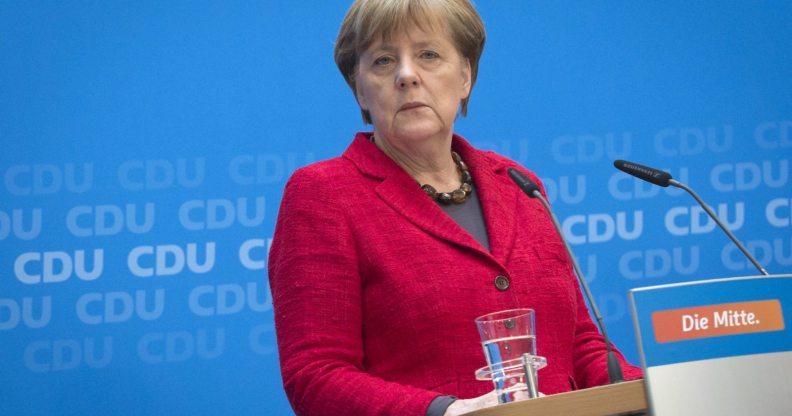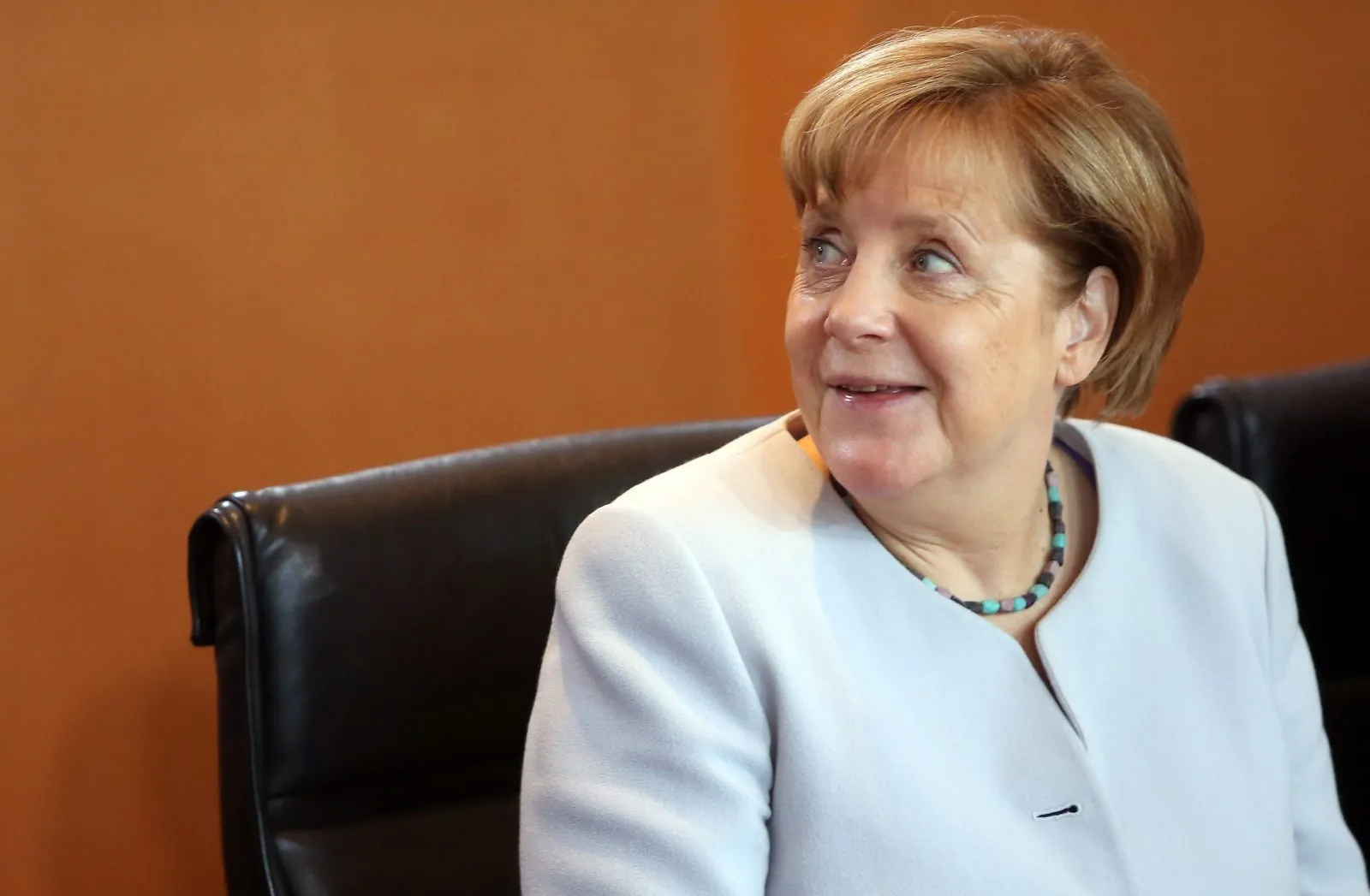Angela Merkel: I voted against same-sex marriage because for me it’s between a man and a woman

(Getty)
Angela Merkel has explained why she cast her own vote against same-sex marriage as it passed through the German Parliament.
Equal marriage passed through the lower house in the German Parliament today, after Chancellor Angela Merkel caved in to demands from opposition parties.
The Chancellor, who has blocked equal marriage consistently across her 12 years in power, had a change of heart to allow her MPs to vote with their conscience on the issue, ensuring it finally passed.
However, Merkel still cast her own personal vote against the legislation.

She explained: “For me, marriage in the Basic Law is marriage between a man and a woman and that is why I did not vote in favour of this bill today.
“I hope that the vote today not only promotes respect between different opinions but also brings more social cohesion and peace.”
393 members of parliament voted in favour of the bill, with 296 voting against and 4 abstentions.
It has been hailed as a win for equality campaigners, who have long attacked the lack of progress in the country on the issue.
However, it also represents a political gamble on the part of Chancellor Merkel ahead of September’s federal elections.
Potential coalition partners had also moved to make equal marriage a condition of helping to keep Merkel’s right-wing Christian Democrats in power after September’s federal election.
One by one, the Greens, the Left Party, and – most significantly – the centre-left junior partner in Merkel’s grand coalition, the Social Democratic Party – have made their positions clear.
The SPD had insisted that any future government would have to bring in equal marriage within 100 days as a condition for their participation.
By getting out ahead of the issue, Merkel has avoided some grief down the road.
However, she has also stirred trouble with some of her own right-wing supporters.
Merkel previously credited her partial evolution on LGBT issues to a lesbian couple, who convinced her to stop blocking progress.
She recalled: “I had a life-changing experience in my home constituency.”
The leader told the audience that she had been invited to dinner with a lesbian couple who were looking after eight foster children.
The Chancellor saw that the children were well cared for, and realised that her beliefs, and those of her party, were unfounded.
She said: “If the youth welfare service entrusts a lesbian couple with eight foster children, then the state could no longer use child welfare as an argument against adoptions.”
The move follows decisions to open the country’s borders to those fleeing the gay purge in Chechnya and annul the convictions of 50,000 men sentenced for homosexuality under a Nazi-era law.

